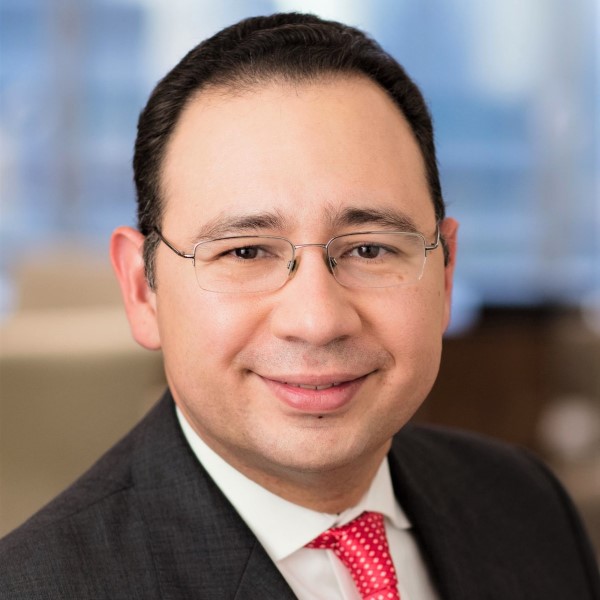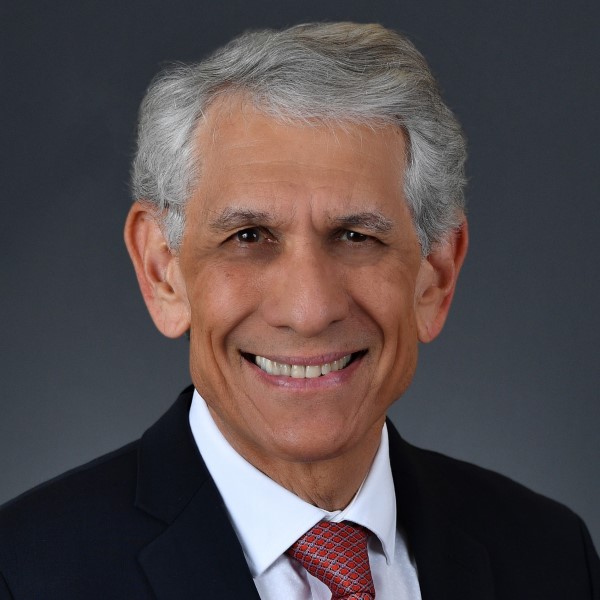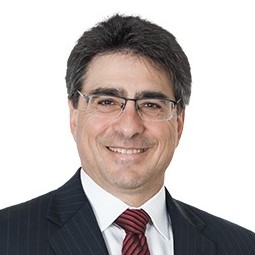
EB5 Investors Magazine is pleased to announce the Top 15 Corporate Attorneys. To be eligible, distinguished attorneys needed to primarily draft offering documents for EB-5 financing.
For more information or to contact any of these professionals, we invite you to view their listings at www.EB5Investors.com/directories.
MICHAEL BAILKIN
Akerman
 Michael Caretnay Bailkin is a real estate developer, lawyer, business entrepreneur and financial services provider. He has served in senior public sector positions for the State of New York and the City of New York. In the private sector he is both principal and a service provider for a range of real estate projects, particularly public-private partnership projects. Bailkin’s core practices are: economic development incentives, which include grant and low interest loan financing; EB-5 financing; social impact funding; and zoning/land use. In his 50 years of practice, Bailkin and his team have been responsible for over $4 billion of incentives and a similar level of tax-exempt financing.
Michael Caretnay Bailkin is a real estate developer, lawyer, business entrepreneur and financial services provider. He has served in senior public sector positions for the State of New York and the City of New York. In the private sector he is both principal and a service provider for a range of real estate projects, particularly public-private partnership projects. Bailkin’s core practices are: economic development incentives, which include grant and low interest loan financing; EB-5 financing; social impact funding; and zoning/land use. In his 50 years of practice, Bailkin and his team have been responsible for over $4 billion of incentives and a similar level of tax-exempt financing.
What do you think about the EB-5 Reform and Integrity Act of 2022?
The new bill needs to be supplemented by a number of clarifications, including the process and discretionary flexibility the USCIS has in determining TEAs. Overall, though, the bill will be a stimulus to a range of transactions and it will channel investment into areas that are truly impacted. A key issue is the infrastructure provisions which provide the benefits normally available only to TEA areas to any infrastructure project. This will provide a private capital component to an asset class that normally is primarily dependent on municipal bond or other government financing.
How are you handling the issue of redeployment?
The primary objective of redeployment is to enable investors whose green card approvals have been delayed beyond the dates of repayment to continue to qualify, essentially by enabling or inducing developers to transfer that capital to other qualifying projects. The new bill is mixed as to making redeployment easier for developers. But the real issue is to make it as attractive (and easy) as possible to redeploy that capital. What is needed are a few refinements in the regulatory structure, and most important, specialized refinancing intermediaries that can work within that framework.
JONATHAN BLOCH
Brownstein
 Jonathan Bloch guides real estate developers through the challenges of raising capital. From identifying development prospects to securing EB-5 and mezzanine financing to finding foreign investment opportunities, he is skilled at navigating complicated situations. Bloch also handles all aspects of the purchase and sale of high-end real estate transactions, including for ultra-high-net-worth individuals. With the utmost discretion, he provides diligent, solution-oriented counsel to ensure real estate transactions close smoothly. He represents buyers and sellers of some of the largest ultra-high-end residential properties across southern California.
Jonathan Bloch guides real estate developers through the challenges of raising capital. From identifying development prospects to securing EB-5 and mezzanine financing to finding foreign investment opportunities, he is skilled at navigating complicated situations. Bloch also handles all aspects of the purchase and sale of high-end real estate transactions, including for ultra-high-net-worth individuals. With the utmost discretion, he provides diligent, solution-oriented counsel to ensure real estate transactions close smoothly. He represents buyers and sellers of some of the largest ultra-high-end residential properties across southern California.
What do you think about the EB-5 Reform and Integrity Act of 2022?
The integrity measures that were addressed in the new bill were much needed and well defined in the Act. Significant time and energy went into finalizing the new five year extension and I am glad that we finally have something to work with and that we will be back in business soon.
How are you handling the issue of redeployment?
Redeployment is a Regional Center issue, and my work is not focused on representing Regional Centers.
ROGELIO CARRASQUILLO
Carrasquillo Law Group
 Rogelio “Roy” Carrasquillo is the managing shareholder of Carrasquillo Law Group P.C. and chair of its EB-5 Immigrant Investor Program services and compliance and securities practices. Carrasquillo represents public and private clients using EB-5 as a source of capital, filing for EB-5 regional center designation, investors evaluating their options at the redeployment stage, as well as developers seeking to raise capital using the EB-5 program. He is experienced with public-private partnership projects using EB-5 funds, Opportunity Zones and Tax Credits. He is a graduate of Georgetown University and University of Pennsylvania Law School and is admitted to practice in New York and Puerto Rico.
Rogelio “Roy” Carrasquillo is the managing shareholder of Carrasquillo Law Group P.C. and chair of its EB-5 Immigrant Investor Program services and compliance and securities practices. Carrasquillo represents public and private clients using EB-5 as a source of capital, filing for EB-5 regional center designation, investors evaluating their options at the redeployment stage, as well as developers seeking to raise capital using the EB-5 program. He is experienced with public-private partnership projects using EB-5 funds, Opportunity Zones and Tax Credits. He is a graduate of Georgetown University and University of Pennsylvania Law School and is admitted to practice in New York and Puerto Rico.
What do you think about the EB-5 Reform and Integrity Act of 2022?
After years of waiting, Congress finally passed the EB-5 Reform and Integrity Act of 2022. Unfortunately, the Act did not bring the stability and clarity that industry stakeholders were expecting. It provided much needed investor protection measures and policies, and further delaying capital from foreign investors to reach the U.S. economy. Also, given the new costly requirements and compliance obligations, we believe that the costs associated with EB-5 investments for developers, regional centers and individual investors will increase, potentially decreasing the amount of available capital for U.S. projects. Nonetheless, despite the uncertainties and changes, we continue to see an interest from EB-5 investors, especially from Latin America, in projects that would qualify under the new rules.
How are you handling the issue of redeployment?
We continue to advise investors and developers on issues related to the redeployment of EB-5 capital, including dealing with the corporate process, to allow for the proper repayment to investors who filed their I-526 prior to March 15, 2022. We are also working with developers and regional centers to adapt their corporate and securities documents for new projects to reflect these new guidelines and requirements under the EB-5 Reform and Integrity Act of 2022. The Act relaxed the sustainability period requirements for EB-5 investments, while still allowing the redeployment of EB-5 capital which is paid back to the NCE prior to the end of an investor’s applicable sustainment period. Nonetheless, the 2022 Act imposed harsh consequences for the improper redeployment of funds, which makes the careful drafting of offering and corporate documents extremely important.
RONALD FIELDSTONE
Saul Ewing Arnstein & Lehr
 Ronald R. Fieldstone, chair and partner of Saul Ewing Arnstein & Lehr LLP’s Global Immigration and Foreign Investment Practice, routinely serves as corporate/securities/real estate counsel in EB-5 immigrant investor offerings for an array of industries. Both developers and regional centers rely on his advice in these deals, resulting in his track record of handling more than 400 EB-5 projects with a combined capital raise in excess of $10 billion. He is chair of the firm’s Opportunity Zones and Qualified Opportunity Funds Practice. Fieldstone received his MBA from the Wharton School of Business and his law degree from the University of Pennsylvania.
Ronald R. Fieldstone, chair and partner of Saul Ewing Arnstein & Lehr LLP’s Global Immigration and Foreign Investment Practice, routinely serves as corporate/securities/real estate counsel in EB-5 immigrant investor offerings for an array of industries. Both developers and regional centers rely on his advice in these deals, resulting in his track record of handling more than 400 EB-5 projects with a combined capital raise in excess of $10 billion. He is chair of the firm’s Opportunity Zones and Qualified Opportunity Funds Practice. Fieldstone received his MBA from the Wharton School of Business and his law degree from the University of Pennsylvania.
What do you think about the EB-5 Reform and Integrity Act of 2022?
The RIA has generated quite a bit of controversy because of the positions taken by USCIS that have seriously impacted fundraising efforts within the EB-5 market. While the RIA contains many appropriate integrity provisions, as the judge in the Behring case has noted, there remain many ambiguities in the statute that require USCIS’s implementation of appropriate rules and regulations. From a securities perspective, the push for greater integrity and transparency is welcome. The ability for eligible EB-5 investors to concurrently file for adjustment of status is also welcome. The flexibility now allowed to ensure EB-5 investor relief in porting over a pending EB-5 petition to another regional center in the event of termination of the original regional center is a huge benefit.
How are you handling the issue of redeployment?
Many of the same principles remain following the passage of the RIA. However, a key change is that there remains no geographic limitation within the United States on redeployments. This is extremely beneficial. There also remains a tremendous amount of potential redeployment capital that is set to be deployed in the coming years. Compliance, with respect to the authority of the general partner or manager of the NCE to make such redeployment and the required disclosures/consents, are critical to the success of the process. Given the increase in redeployment volume, so have the litigation claims also risen by various investors. Redeployment is a tremendous boon to new developments but remains complicated.
CATHERINE DEBONO HOLMES
Jeffer Mangels Butler & Mitchell
 Catherine D. Holmes is chair of JMBM’s Investment Capital Law Group, and the author of the Investment Law Blog. She has practiced law at JMBM for over 35 years, focusing on investment capital and business transactions. She helps clients worldwide to raise, invest and manage capital from U.S. and non-U.S. investors. She has represented more than 100 real estate developers in obtaining financing through the EB-5 immigrant investor visa program. With extensive experience in the hospitality industry, Holmes specializes in resort and urban mixed-use financing and development, hotel management and franchise agreements, resort and hotel purchase and sale transactions, and public-private hotel development. Her finance and investment experience includes handling business formations for entrepreneurs, private securities offerings, structuring and offering of private investment funds, and business and regulatory matters for investment bankers, investment advisers, securities broker-dealers and real estate/mortgage brokers.
Catherine D. Holmes is chair of JMBM’s Investment Capital Law Group, and the author of the Investment Law Blog. She has practiced law at JMBM for over 35 years, focusing on investment capital and business transactions. She helps clients worldwide to raise, invest and manage capital from U.S. and non-U.S. investors. She has represented more than 100 real estate developers in obtaining financing through the EB-5 immigrant investor visa program. With extensive experience in the hospitality industry, Holmes specializes in resort and urban mixed-use financing and development, hotel management and franchise agreements, resort and hotel purchase and sale transactions, and public-private hotel development. Her finance and investment experience includes handling business formations for entrepreneurs, private securities offerings, structuring and offering of private investment funds, and business and regulatory matters for investment bankers, investment advisers, securities broker-dealers and real estate/mortgage brokers.
What do you think about the EB-5 Reform and Integrity Act of 2022?
I believe that the EB-5 Reform & Integrity Act of 2022 will act as a deterrent to some of the fraudulent and unlawful activities of some bad actors who took advantage of the EB-5 program for their own benefit, with little regard for investors or the integrity of the EB-5 program as a whole. Although the Act has created some ambiguities, if USCIS acts promptly and reasonably to interpret the ambiguities, it could be a workable framework for EB-5 offerings in the future.
How are you handling the issue of redeployment?
The issue of redeployment is one of the ambiguities created by the Act. The Act deleted one small phrase that USCIS had interpreted previously to require redeployment. We don’t know if USCIS will now interpret the Act to allow repayment of investors without any required holding period, or if some holding period will still be required. Until we have further clarity on that issue from USCIS, I believe it will be necessary for offering documents to include the possibility of reinvestment if USCIS policy requires it.
MICHAEL G. HOMEIER
Law Office of Michael G. Homeier
 Michael Homeier is a long-standing leader in EB-5 securities transactions, applying his 40 years’ experience on over 500 EB-5 matters since 2009 with his prior firm Homeier Law PC and now back in solo practice. He represents primarily EB-5 issuers, regional centers, and developers drafting EB-5 securities, corporate, and transactional documents (including PPMs) including compliance with the new Reform & Integrity Act. Homeier is a frequent speaker on EB-5 and crowdfunding panels and webinars, and as an inspirational speaker to young adult cancer survivors (as one himself) on finding post-treatment life success.
Michael Homeier is a long-standing leader in EB-5 securities transactions, applying his 40 years’ experience on over 500 EB-5 matters since 2009 with his prior firm Homeier Law PC and now back in solo practice. He represents primarily EB-5 issuers, regional centers, and developers drafting EB-5 securities, corporate, and transactional documents (including PPMs) including compliance with the new Reform & Integrity Act. Homeier is a frequent speaker on EB-5 and crowdfunding panels and webinars, and as an inspirational speaker to young adult cancer survivors (as one himself) on finding post-treatment life success.
What do you think about the EB-5 Reform and Integrity Act of 2022?
The RIA is a strongly positive improvement for the program and industry, despite the law’s imperfections due to ambiguities and issues left unaddressed. Assigning regional centers an affirmative oversight role over the financing of EB-5 projects leverages the unique presence of RCs without imposing strict liability, strikes a balance that should go far to adding real investor protection without imposing an impossible risk burden on participating businesses. Compliance will inevitably be more complicated and more expensive, but program integrity will be strengthened and thus the appeal and utilization of the program, as immigrants realize they will be better protected than ever.
How are you handling the issue of redeployment?
The redeployment issue looks drastically altered by the RIA’s change in the sustainment period to (apparently) two years from deployment of the investor’s funds into the underlying project, which should markedly reduce the time that redemption is barred. Since processing times remain wildly uncertain, I advise clients to protect investors by committing to redeployment and clearly describing up-front in the offering documents the redeployment policy and options. My firm’s tiered redeployment approach imparts maximum flexibility with low perceived risk, seeking to protect investors’ money and immigration goals while simultaneously fulfilling the disclosure obligation and retaining flexibility to address the inevitable change of circumstances over time.
ROHIT KAPURIA
Saul Ewing Arnstein & Lehr
 Rohit Kapuria, an attorney at Saul Ewing Arnstein & Lehr LLP, regularly represents EB-5 lenders, borrowers, banks, regional centers, real estate developers and migration brokers. Kapuria’s practice is a dual hybrid of corporate securities and EB-5 immigration law. He has worked on over 500 EB-5 transactions, with a combined capital development cost in excess of $7.5 billion. Kapuria currently represents close to 25% of the Indian born EB-5 investor market. He is also very active in Opportunity Zones, representing clients around the U.S. in such transactions. Kapuria can speak several languages and is fluent in Hindi, Urdu, Punjabi and Hausa.
Rohit Kapuria, an attorney at Saul Ewing Arnstein & Lehr LLP, regularly represents EB-5 lenders, borrowers, banks, regional centers, real estate developers and migration brokers. Kapuria’s practice is a dual hybrid of corporate securities and EB-5 immigration law. He has worked on over 500 EB-5 transactions, with a combined capital development cost in excess of $7.5 billion. Kapuria currently represents close to 25% of the Indian born EB-5 investor market. He is also very active in Opportunity Zones, representing clients around the U.S. in such transactions. Kapuria can speak several languages and is fluent in Hindi, Urdu, Punjabi and Hausa.
What do you think about the EB-5 Reform and Integrity Act of 2022?
While I welcome the Act with open arms, there is much in there that remains ambiguous with respect to forthcoming policy guidance from USCIS. As of the date hereof, we have only received bits and pieces of interpretive guidance from USCIS. Some of the guidance is straightforward and some is very controversial. There are also high barriers to entry that have been introduced that could dissuade new EB-5 entrants and certainly will result in the exit of some older EB-5 players. Notwithstanding the foregoing, however, I welcome many of the new integrity provisions since it will help to create and foster far more transparency in the EB-5 process than has ever been required previously.
How are you handling the issue of redeployment?
Redeployment continues to be an active area, even during the lapse of the regional center program, in which we have provided substantive advice and guidance to various clients. Of course, the COVID-19 pandemic did have a severe effect on many EB-5 projects and some of the redeployments we have worked on in the last two years have been focused on distilling unfavorable news to EB-5 investors with respect to the value of their underlying capital contributions, while also seeking consent for subsequent redeployment of their remaining funds to ensure compliance with the “at risk” requirements for the EB-5 program. Some EB-5 investors have, understandably, been quite unhappy with the news and so redeployment has also raised several other tricky issues in the last two years.
CHARLES KAUFMAN
Lexcuity PC
 Charles Kaufman is a corporate and securities attorney and shareholder at Los Angeles-based Lexcuity PC. With more than 25 years of experience in helping clients create, finance and govern their businesses, he regularly advises developers, entrepreneurs and regional centers seeking to raise capital through the EB-5 investor visa program and meeting the new compliance standards of the EB-5 Reform and Integrity Act. In addition to EB-5, Kaufman’s fintech practice includes clients offering innovative digital securities and listing securities on SEC-regulated alternate trading systems.
Charles Kaufman is a corporate and securities attorney and shareholder at Los Angeles-based Lexcuity PC. With more than 25 years of experience in helping clients create, finance and govern their businesses, he regularly advises developers, entrepreneurs and regional centers seeking to raise capital through the EB-5 investor visa program and meeting the new compliance standards of the EB-5 Reform and Integrity Act. In addition to EB-5, Kaufman’s fintech practice includes clients offering innovative digital securities and listing securities on SEC-regulated alternate trading systems.
What do you think about the EB-5 Reform and Integrity Act of 2022?
The RIA reminds me of a stubborn ketchup bottle that you tap and tap… then it suddenly floods your plate. The act was long overdue, but it was adopted in haste. Some provisions are poorly drafted. And some of the compliance requirements seem overly burdensome and arguably go beyond what is needed for investor protection. Nevertheless, renewal of the program and reduction in the risk of fraud is welcome. We’re seeing great interest in launching projects under RIA, despite the challenges.
How are you handling the issue of redeployment?
Preparation is everything. For quite a long time we’ve been advising clients to include redeployment plans in their operating agreement or limited partnership agreement.
ANDREW KINGSTON
Kingston Petersen
 Andrew Kingston is a principal with Kingston Petersen, PLLC. Kingston has acted as EB-5 securities and corporate counsel since 2009. He served as general counsel to private and publicly traded companies, and was a founding partner of NNDKP, one of the largest law firms in Southeastern Europe. He taught Corporate Finance in Emerging Markets at Cornell Law School and was law clerk to Harold M. Fong, Jr., Chief Judge of the U.S. District Court in Hawaii. He received his BA from University of Virginia and his JD from Harvard Law School. Kingston is a member of the Washington State Bar.
Andrew Kingston is a principal with Kingston Petersen, PLLC. Kingston has acted as EB-5 securities and corporate counsel since 2009. He served as general counsel to private and publicly traded companies, and was a founding partner of NNDKP, one of the largest law firms in Southeastern Europe. He taught Corporate Finance in Emerging Markets at Cornell Law School and was law clerk to Harold M. Fong, Jr., Chief Judge of the U.S. District Court in Hawaii. He received his BA from University of Virginia and his JD from Harvard Law School. Kingston is a member of the Washington State Bar.
What do you think about the EB-5 Reform and Integrity Act of 2022?
Remember the old western movie with the terrified sheriff who pins his badge on some hapless stranger before hustling out of town? The good old days of collecting fees for processing paperwork are officially over. Whether they like it or not, regional center operators are now an enforcement arm of the government – deputy sheriffs responsible for catching bank robbers and certifying that the saloon only serves legitimate redeye. Not everyone will be comfortable wearing their new badge, and a few towns may wind up without any sheriff at all.
How are you handling the issue of redeployment?
U.S. securities law does not make it easy to redeploy EB-5 investor capital. For NCE managers in particular, redeployment is a regulatory minefield. Who chooses the new investment opportunity? The manager? Good, just make sure you’ve registered as an investment adviser first. The investors? Fine, but you won’t like the legal bill for the mini-PPM you send to help investors decide. There’s no perfect solution, but the best option I’ve found is to use the PPM to tell investors exactly how you intend to redeploy, and then be sure to do exactly what you said you would do.
DEBBIE KLIS
Rimon Law
 Debbie Klis has substantial investment fund, securities and capital markets experience with a particular emphasis on private equity funds, venture capital funds, hedge funds, real estate funds, EB-5 funds, QOZ funds and large master-feeder structures. Klis has worked with sponsors on SPAC IPOs and related de-SPAC transactions since 2008. Her EB-5 experience dates back to 2007 and involves representing real estate developers, project sponsors and regional center owners from coast to coast on projects involving casinos, hotels, resorts, mixed-use commercial, mixed-use residential (including some with LIHTC), construction of single-family homes, condominiums, manufacturing facilities, shipping, historic renovations with tax credits, and more.
Debbie Klis has substantial investment fund, securities and capital markets experience with a particular emphasis on private equity funds, venture capital funds, hedge funds, real estate funds, EB-5 funds, QOZ funds and large master-feeder structures. Klis has worked with sponsors on SPAC IPOs and related de-SPAC transactions since 2008. Her EB-5 experience dates back to 2007 and involves representing real estate developers, project sponsors and regional center owners from coast to coast on projects involving casinos, hotels, resorts, mixed-use commercial, mixed-use residential (including some with LIHTC), construction of single-family homes, condominiums, manufacturing facilities, shipping, historic renovations with tax credits, and more.
What do you think about the EB-5 Reform and Integrity Act of 2022?
On behalf of my clients, I am grateful for the revival of the regional center program. The Act represents a significant effort to modernize the regional center program, while making it more flexible for market realities. I was pleased to see the set-aside of reserved visas for rural, high unemployment and infrastructure projects, relaxation of pre-Act redeployment location requirements, investor protections, $800,000 minimum investment in TEAs, exemplar requirement, etc. I am concerned about the Act’s punitive aspects including fines, penalties and terminations.
How are you handling the issue of redeployment?
Despite USCIS’ backlog reduction goals, the investor backlog is vast and perpetual, which means that redeployment arises frequently in my practice. I had several redeployment projects in progress when the Act passed. My clients where thrilled that once again NCEs may redeploy capital anywhere in the U.S. When an early exit occurs, most clients look to their definitive documents; in some instances, these documents were drafted before USCIS enacted its more flexible redeployment rules in June 2017, which means that the documents require that EB-5 capital remains invested until a final adjudication of investors’ I-829s. Other clients require investors to sustain the investment only to the end of the two-year period after the investor becomes admitted as a conditional permanent resident, even if the governing documents had a greater requirement.
JENNIFER MOSELEY
Burr & Forman
 Jennifer Moseley is a corporate and securities partner at Burr & Forman LLP in Atlanta, and advises small start-ups to large, public companies in an array of transactions and capital raising activities. She enjoys assisting her clients in her role as counselor to start-up and developmental stage companies. Moseley was introduced to EB-5 in early 2008 and addressed securities law implications in EB-5 during the “early years” when securities law was not at the forefront of EB-5 related discussions. She continues to help clients navigate the intricacies of securities laws with practical solutions to meet their goals.
Jennifer Moseley is a corporate and securities partner at Burr & Forman LLP in Atlanta, and advises small start-ups to large, public companies in an array of transactions and capital raising activities. She enjoys assisting her clients in her role as counselor to start-up and developmental stage companies. Moseley was introduced to EB-5 in early 2008 and addressed securities law implications in EB-5 during the “early years” when securities law was not at the forefront of EB-5 related discussions. She continues to help clients navigate the intricacies of securities laws with practical solutions to meet their goals.
What do you think about the EB-5 Reform and Integrity Act of 2022?
I generally support ensuring that the original intent of EB-5 to provide economic stimulation is met, and increasing transparency regarding the use of EB-5 funds. There are some changes, however, that could have unintended negative impact on the EB-5 participants and economic stimulation. For example, the USCIS, which is not an economic agency, does not seem equipped to determine TEAs, so the results of this change and the two-year limit will be important.
How are you handling the issue of redeployment?
I anticipate the possibility of redeployment and discuss this in the original PPM, and you have to consider securities exemptions and disclosures to investors before you can redeploy any funds. I discuss upfront with the JCE whether they have considered how to redeploy EB-5 funds in case an investment is repaid too early or fails. The update by the USCIS two years ago clarifying when an investor’s funds are “at risk” will eliminate the need for redeployment for some investors, and in the last year I have seen this to be the case, which made the redeployment discussion less relevant.
JACKIE PRESTER
Baker Donelson
 Jackie Prester is a shareholder in the Memphis office of Baker Donelson Bearman Caldwell & Berkowitz. P.C., with 24 years of experience in the corporate and securities practice areas. Prester is the practice group chair of the firm’s Financial Services Transactions practice group. She has particular experience advising clients on securities issues relating to the EB-5 Immigrant Investor Program. This experience includes helping clients draft private placement memorandums, negotiating agreements with broker-dealers and other securities professionals, and advising on securities compliance issues.
Jackie Prester is a shareholder in the Memphis office of Baker Donelson Bearman Caldwell & Berkowitz. P.C., with 24 years of experience in the corporate and securities practice areas. Prester is the practice group chair of the firm’s Financial Services Transactions practice group. She has particular experience advising clients on securities issues relating to the EB-5 Immigrant Investor Program. This experience includes helping clients draft private placement memorandums, negotiating agreements with broker-dealers and other securities professionals, and advising on securities compliance issues.
What do you think about the EB-5 Reform and Integrity Act of 2022?
The EB-5 Reform and Integrity Act of 2022 expressly addresses federal securities laws and largely puts the burden of securities law education and compliance on regional centers. The Act requires extensive documentation to evidence compliance, including the requirement for written policies and procedures, diligence worksheets, and related party questionnaires. Furthermore, the Act makes regional centers effectively responsible for ensuring compliance with the securities laws by various third parties, which increases potential liability. Regional centers face draconian sanctions for misstatements or noncompliance including suspension, fines up to 10% of capital raised, debarment of individuals, or termination.
How are you handling the issue of redeployment?
For investors who filed I-526 after March 15, 2022, the Act requires only that from the beginning the investor’s capital is expected to remain invested for not less than two years. The drastic reduction of the sustainment period for investors who invest after the adoption of the Act eliminates the need for NCEs to “redeploy” EB-5 capital in most instances. The Act continues some existing policy requirements, relaxes one requirement, and sets some new demanding requirements. Shockingly, the 2022 Act requires USCIS to terminate a regional center if one of its NCEs violates the redeployment requirements.
BRUCE ROSETTO
Greenberg Traurig
 Bruce C. Rosetto represents private and public companies, private equity funds, investment banks, and has extensive experience with the EB-5 program. He has broad experience in public company securities work, private placement financings, corporate governance, and alternate assets. His practice focuses on entrepreneurs and small to middle market public companies throughout the United States in a variety of industries. He also forms private equity funds and family offices and represents affiliated portfolio companies. In addition, he advises clients in connection with raising capital for and establishing regional centers to administer projects qualifying for investment under the EB-5 visa program.
Bruce C. Rosetto represents private and public companies, private equity funds, investment banks, and has extensive experience with the EB-5 program. He has broad experience in public company securities work, private placement financings, corporate governance, and alternate assets. His practice focuses on entrepreneurs and small to middle market public companies throughout the United States in a variety of industries. He also forms private equity funds and family offices and represents affiliated portfolio companies. In addition, he advises clients in connection with raising capital for and establishing regional centers to administer projects qualifying for investment under the EB-5 visa program.
What do you think about the EB-5 Reform and Integrity Act of 2022?
I am pleased to see Congress has made a serious attempt to provide a long-term solution to problems that have been inherent in the EB-5 program. Like any legislative “fix,” there are some good things that came out of this Act, such as more oversight, grandfathering and increasing the investment amounts. On the other hand, it creates some confusion, adds significant burdens and demands on the regional center, and I do not like the elimination of “pooled” direct EB-5 programs. I think this will hurt many industries, and in particular the restaurant and franchise sectors.
How are you handling the issue of redeployment?
I have not made significant changes to how I advise clients on the redeployment issue. The 2022 Act specifically recognizes redeployment and has expanded it to be permissible throughout the U.S. as opposed to the approved regional center area. This is helpful. I always advised clients that the original project had to be implemented without material change so the 2022 Act has codified this. The 2022 Act now requires that the job creating entity has repaid the capital and we will advise clients accordingly. This could be a bit more troublesome but we will navigate through it.
JOHN TISHLER
Sheppard Mullin
 John Tishler is a partner at global law firm Sheppard Mullin, where he leads the firm’s EB-5 Project Finance team. Tishler’s practice includes corporate governance, capital markets, corporate finance, business transactions, mergers and acquisitions and technology. Tishler’s clients include EB-5 fund managers, developers, regional centers and other EB-5 intermediaries. His projects have included nationally recognized hotels, mixed use and residential developments. Tishler is a frequent writer and speaker on corporate governance and EB-5, and the co-editor and co-author of The EB-5 Handbook: A Guide for Investors and Developers. He is a graduate of Cornell University and Yale Law School.
John Tishler is a partner at global law firm Sheppard Mullin, where he leads the firm’s EB-5 Project Finance team. Tishler’s practice includes corporate governance, capital markets, corporate finance, business transactions, mergers and acquisitions and technology. Tishler’s clients include EB-5 fund managers, developers, regional centers and other EB-5 intermediaries. His projects have included nationally recognized hotels, mixed use and residential developments. Tishler is a frequent writer and speaker on corporate governance and EB-5, and the co-editor and co-author of The EB-5 Handbook: A Guide for Investors and Developers. He is a graduate of Cornell University and Yale Law School.
What do you think about the EB-5 Reform and Integrity Act of 2022?
The Reform and Integrity Act should be a major benefit for the industry. I believe that certain EB-5 offerings will become more attractive to investors based on the new visa priority classifications and therefore will provide better predictability for our issuer clients. We have, for a decade, spoken of the importance of regional centers and NCEs using securities law best practices for their EB-5 offerings. The best ones already did so before the RIA. I believe the RIA will help to level the playing field, eliminating any perceived advantages of cutting corners and allowing issuers to compete for investors based on the quality of their projects.
How are you handling the issue of redeployment?
Redeployment is a major event that requires navigation of important legal and governance issues, including securities laws, LLC/limited partnership law, fiduciary duties, project finance, tax and immigration matters. A successful redeployment requires balancing the interests of investors, intermediaries and developers in the face of regulatory uncertainty. Investors often object to redeployment plans and EB-5 funds are facing threats of lawsuits as they endeavor to redeploy within a commercially reasonable time. This has been a major focus of our EB-5 practice for the last two years.
OSVALDO TORRES
Torres Law
 Osvaldo F. Torres, graduated from the University of Pennsylvania Carey Law School in 1987. During his 35-year career, Torres has helped clients navigate complex corporate and securities transactions. For the past 12 years, Torres has been immersed in the EB-5 space. He regularly represents regional centers, developers and issuers with offering, loan and redeployment matters for hotel, multi-family, senior living, franchising and other projects. Torres is frequently invited to speak at EB-5 conferences on securities issues. He is a member of the EB-5 SEC Roundtable, serves on IIUSA’s Leadership, Public Policy and Editorial Committees, and is rated AV Preeminent by Martindale-Hubbell.
Osvaldo F. Torres, graduated from the University of Pennsylvania Carey Law School in 1987. During his 35-year career, Torres has helped clients navigate complex corporate and securities transactions. For the past 12 years, Torres has been immersed in the EB-5 space. He regularly represents regional centers, developers and issuers with offering, loan and redeployment matters for hotel, multi-family, senior living, franchising and other projects. Torres is frequently invited to speak at EB-5 conferences on securities issues. He is a member of the EB-5 SEC Roundtable, serves on IIUSA’s Leadership, Public Policy and Editorial Committees, and is rated AV Preeminent by Martindale-Hubbell.
What do you think about the EB-5 Reform and Integrity Act of 2022?
Not an easy question to answer. I have mixed feelings. When the Integrity Act finally passed, like most, I felt a great sense of relief and joy. Finally, all those years of EB-5 industry uncertainty and in-fighting seemed to have come to an end. Then, upon once again closely reading the final text of the Integrity Act, I slumped into dejection. It was mired with inconsistencies and ambiguities. It was quicksand. Irrespective, I remain hopeful. I know good is served by helping others come to this great nation.
How are you handling the issue of redeployment?
Redeployment may no longer be a material concern for projects approved after passage of the Integrity Act because the definition of the “sustainment period” appears to have been altered by the new law. However, for pre-Act projects, redeployment lives on and the same issues that mire redeployment will continue with respect to such projects. But who really knows? Some believe that the new definition of the sustainment period was changed in error. Still, I do not see projects returning funds before the underlying deals run their normal “exit” course—usually about 5 years if all goes well.
DISCLAIMER: The views expressed in this article are solely the views of the author and do not necessarily represent the views of the publisher, its employees. or its affiliates. The information found on this website is intended to be general information; it is not legal or financial advice. Specific legal or financial advice can only be given by a licensed professional with full knowledge of all the facts and circumstances of your particular situation. You should seek consultation with legal, immigration, and financial experts prior to participating in the EB-5 program Posting a question on this website does not create an attorney-client relationship. All questions you post will be available to the public; do not include confidential information in your question.







